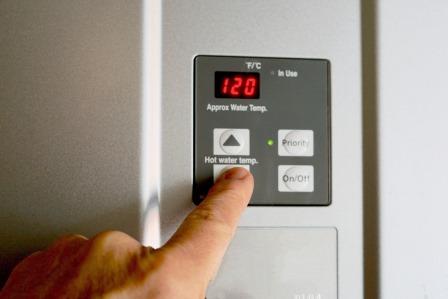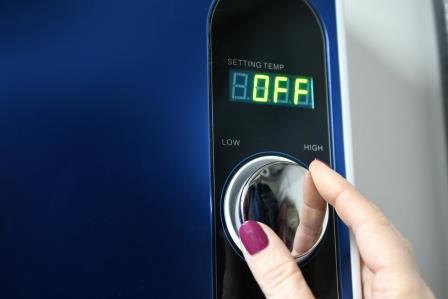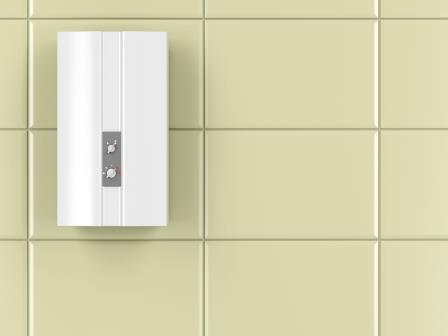Tankless Water Heaters and the Science Behind Them
Have you ever seen a magic trick in which a faucet pours freshwater just to discover that there is no source behind the faucet head? Many people, believe it or not, believe that is how a tankless water heater from a tankless water heater company in Singapore functions. To be honest, a lot of people believe that their hot water only appears out of nowhere. After all, if it doesn’t come from a hot water tank, where does it come from?

We’re going to tackle the question today. The science behind tankless water heaters will be discussed. We will get into the nitty gritty of how these devices operate, how much energy they use, and what types of homes are best suited for them.
It’s not magic, but knowing how your water heater works can be very useful and entertaining—especially if you ever have any problems with it!
The term “tankless” refers to the absence of a tank.
We understand that this piece of information can seem self-evident, but bear with us. Traditionally, tanks were used to store water and heat it to a safe temperature so that you could use it when you turned on the tub, faucet, or washing machine. Since the water was stored at this temperature in a tank, there was only so much water that could be kept at this temperature until the tank drained dry and had to be refilled. Many of you might be familiar with the situation where you’re waiting for your tank water heater to refill and your shower unexpectedly becomes cold due to a lack of hot water! This can be very aggravating, and it’s been a difficult conundrum to solve for the past 30 years.
Instant Heating
What if the tank was completely removed from the equation? Couldn’t you effectively have instant hot water without a tank by streaming water through a pipe that’s superheated by a gas burner? A tankless water heater works in the same way! You can get limitless hot water by using a continuous stream of water that is heated to the right temperature when you need it.
Bear in mind that a traditional tank water heater necessitates heating the tank for the entire day. If you turn on a hot faucet at any time, the water must first be heated before the faucet can work. This leads to a phenomenon known as standby heat loss, which means that energy is continually lost to keep your hot water tank warm. This is never an issue with a tankless configuration. Since they don’t waste energy holding a tank hot and just burn fuel when it’s needed, tankless water heaters have gained a reputation for being much more energy-efficient than their conventional equivalents.
Is It Enough for Your Residence?
This is the most crucial question to consider. If your family is continually frustrated because their hot water doesn’t last long enough for recurrent showers or baths, a tank water heater could fix your problems while also lowering your bills. If you have several bathrooms and multiple people using hot water at the same time, make sure your tankless system is designed appropriately to accommodate your hot water use, or your water will come out cold!

Why should you ditch your tank?
Here are a few of the many advantages of tankless water heaters for your home:
- A tankless water heater just heats the water you use, unlike conventional heaters that must keep the water warm at all times. Consider it hot water on call.
- Cost savings: Since it just heats what you use, you only have to pay for what you use, rather than paying to keep the water in the tank warm.
- Tankless water heaters benefit the atmosphere by consuming less electricity and thereby lowering the carbon footprint.
- Never-ending hot water supply: Since these units heat water as it flows through them, you will have an almost limitless supply of hot water. There isn’t a finite amount that will be consumed. Tankless models, unlike traditional tank heaters, keep heating water without the need to wait for more to heat up.
- Tankless water heaters take up less room in your home than traditional tank water heaters.
- Tankless heaters usually last longer than older conventional tanked heaters, and there’s no risk of them bursting and leaking water.
There are two main types of heaters.
Water heaters are divided into two types: storage and instant.
Tankless hot water heaters or demand-type water heaters are other names for instant water heaters. They don’t use a storage tank and just have hot water when it’s needed.
Water heaters with an enclosed tank are known as storage water heaters. Although gas storage heaters are widely available in other countries, they are not available in Singapore.
You Should Be Aware of These Common Misconceptions About Instant Water Heaters
Although some people believe that instant water heaters (also known as tankless water heaters) are ineffective, others prefer them to other forms. Instant water heaters are considered cutting-edge technology, especially in more modern designs. When switching from a storage water heater to an instant water heater, it can be a big decision. There are a lot of misconceptions about instant water heaters that can make you hesitant to switch. You should be aware of certain common myths about instant water heaters.
Operating costs are high.
The reality is very different. Instant hot water heaters are less expensive and will save you up to 20% on your energy bills. Storage water heaters heat water stored in a large 30–40 gallon tank, which takes about 30 minutes to heat up fully. Not all of the water in the tank is used every time. Instant water heaters only heat water when it is required. As a result, when you build a water heater of this kind, you would not have to pay as much in energy bills as you would otherwise based on pre-assumed hot water consumption, minimizing wastage.

Inadequate hot water
Around 40–50 gallons of hot water is stored in a storage water heater. You’ll need to reheat another tank after you’ve used up too much water. As a result, there is a scarcity of resources. An instant water heater, on the other hand, can provide you with hot water for as long as you need it. Despite the lack of a storage tank, these heaters will ensure that there is never a shortage of hot water. Water is heated as it passes over the outlet’s heating element. To get hot water, simply turn on the faucet whenever you need it.
The use of instant water heaters is dangerous.
Many people are hesitant to build these because they believe they can heat water to dangerously high temperatures. It’s just a misconception, since these heaters have an adjustable thermostat that can heat water to a suitable temperature based on the user’s preferences. After installing a tankless water heater, you can change the thermostat to your preferences and enjoy using water that has been heated to the proper temperature.
Almost all tankless water heaters are the same.
Despite the fact that today’s tankless water heaters are more advanced than ever before, some brands perform better in some applications than others. Water heaters in Singapore are usually the same, but companies aim to release new water heaters every year as technology advances. Others have poor product support and are less dependable, while others can last a long time and are backed by excellent customer service.
Conclusion
So now that you know how a tankless water heater works, why not buy one from a tankless water heater company in Singapore. Though you should always remember to choose one that suits the needs of your home.
 Tasselline | Latest Articles By Singaporeans, for Singaporeans Article Site for Singaporeans
Tasselline | Latest Articles By Singaporeans, for Singaporeans Article Site for Singaporeans